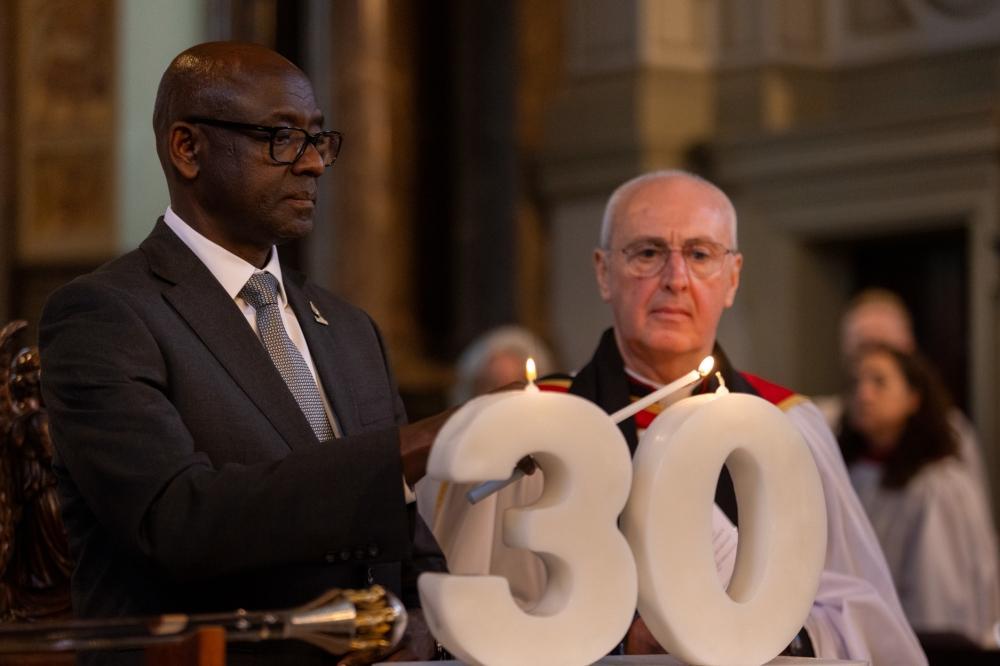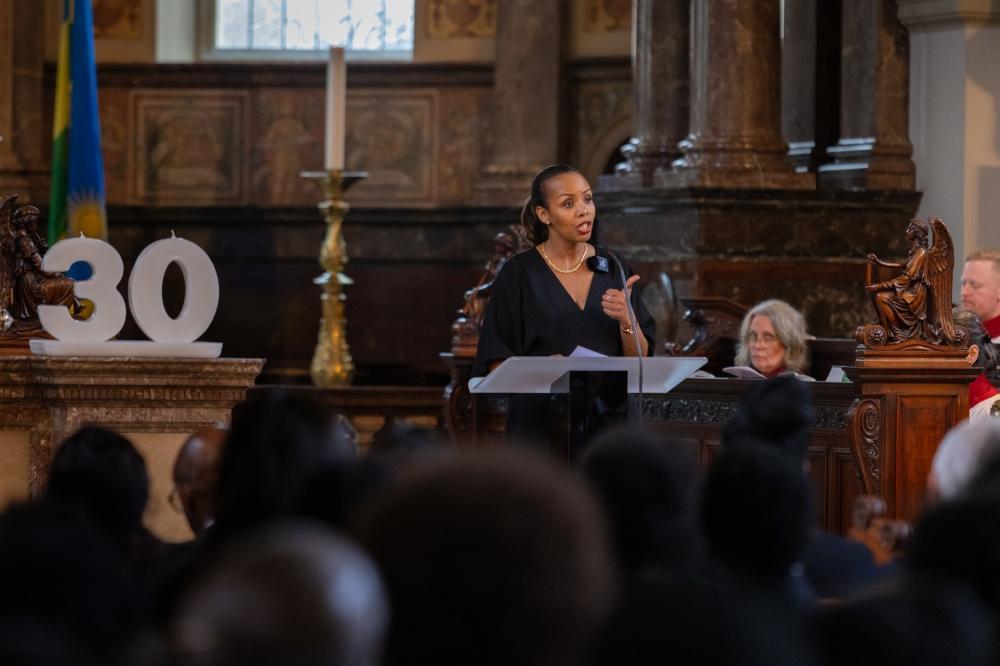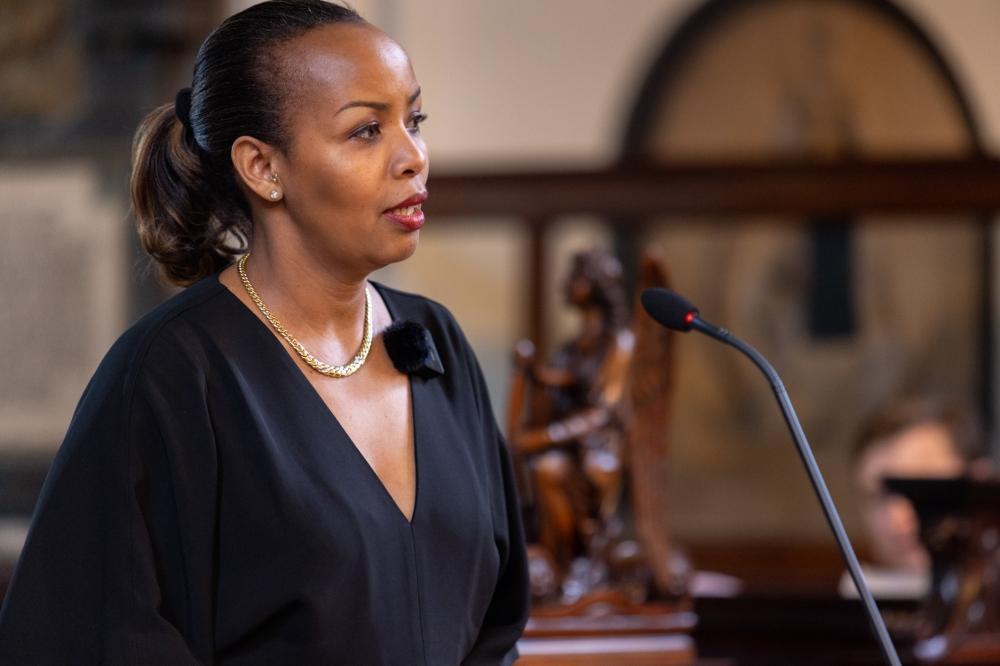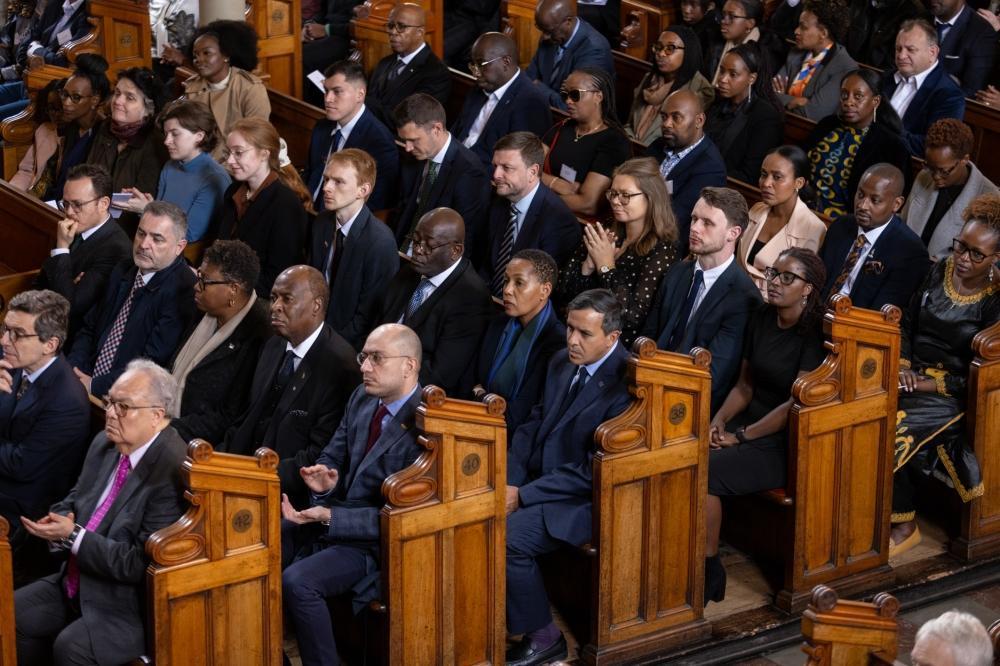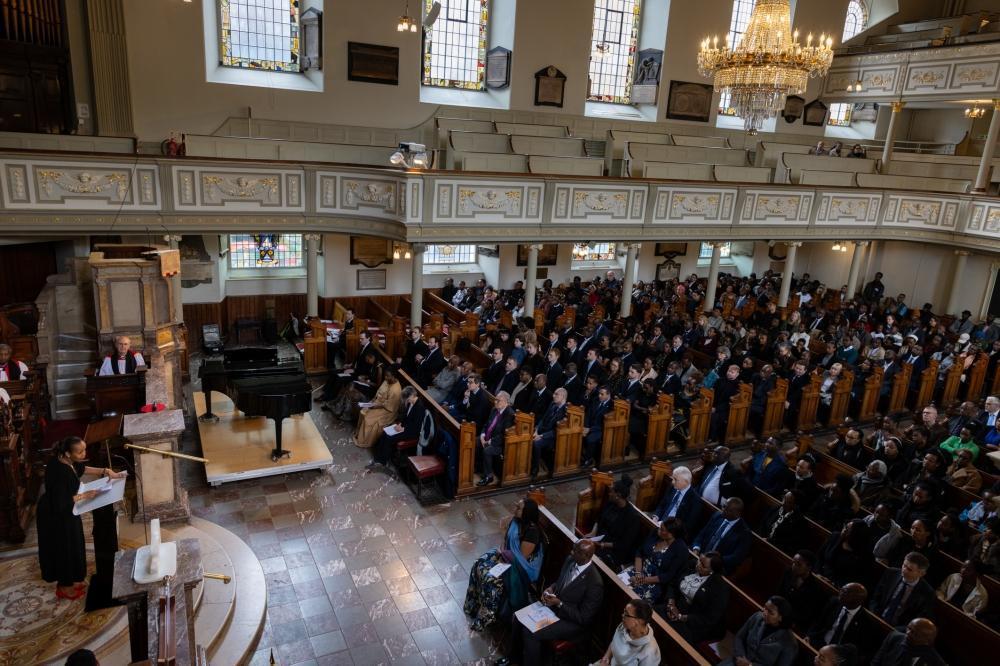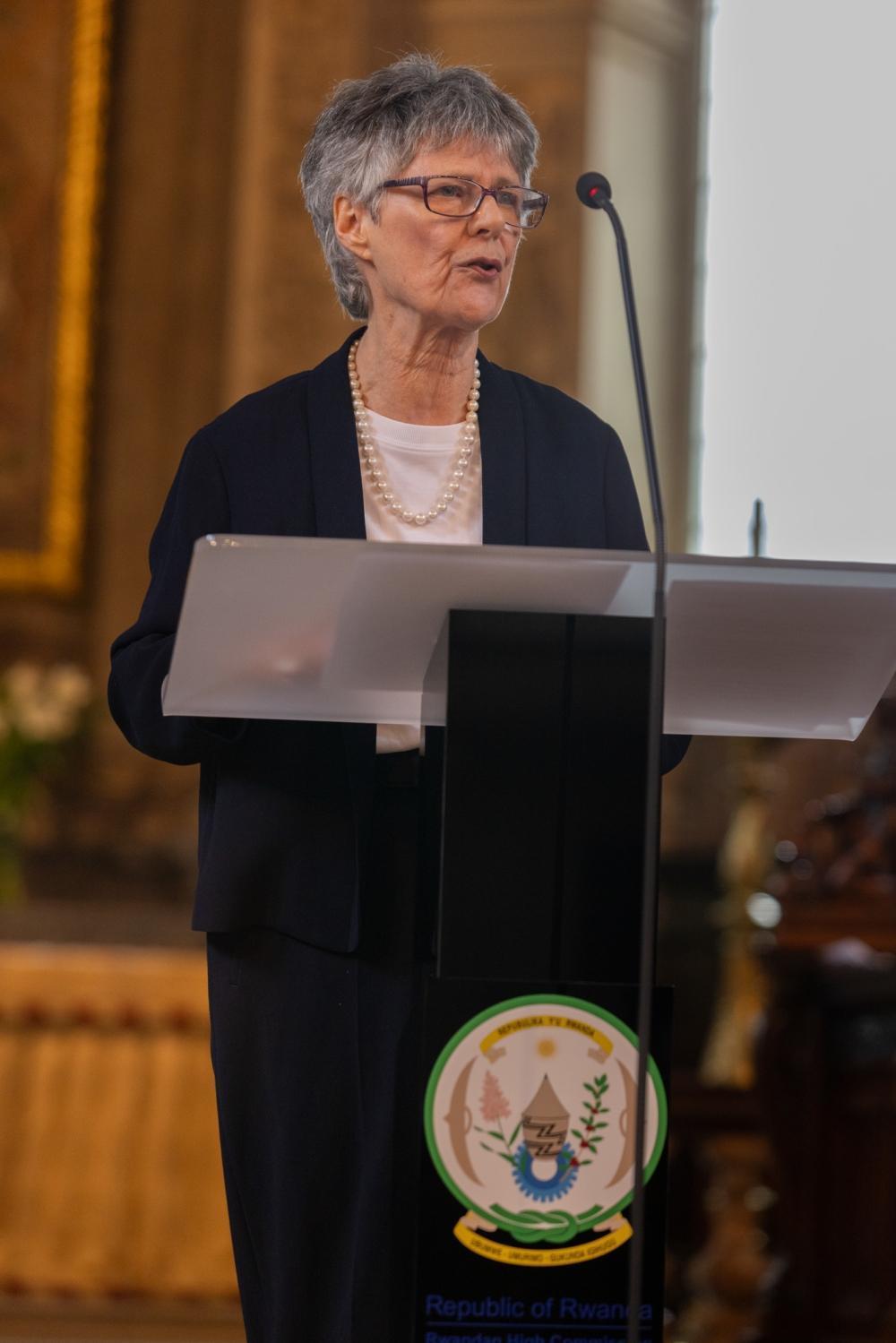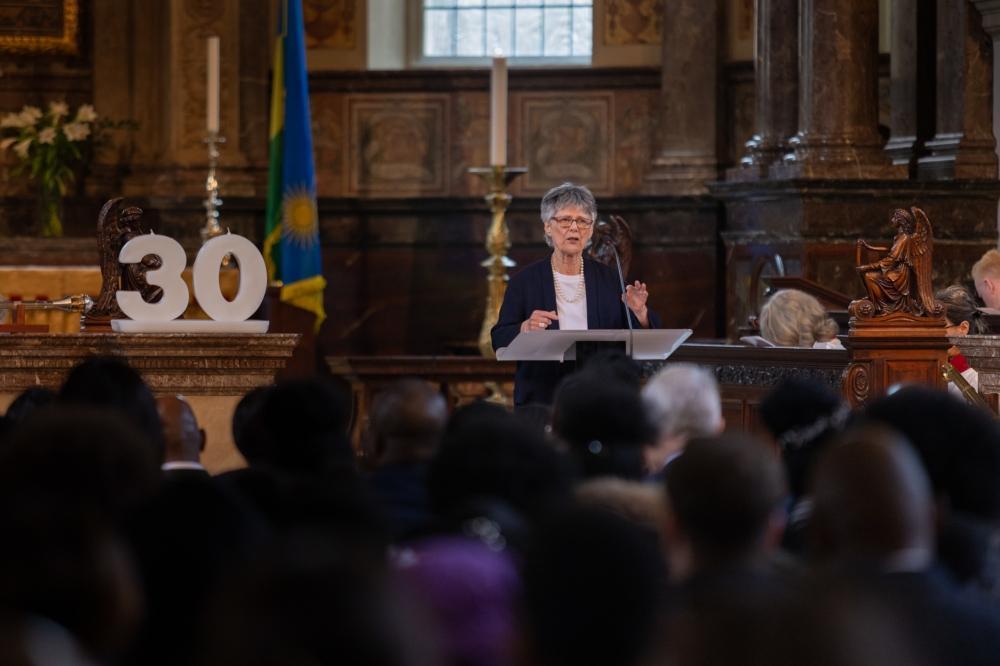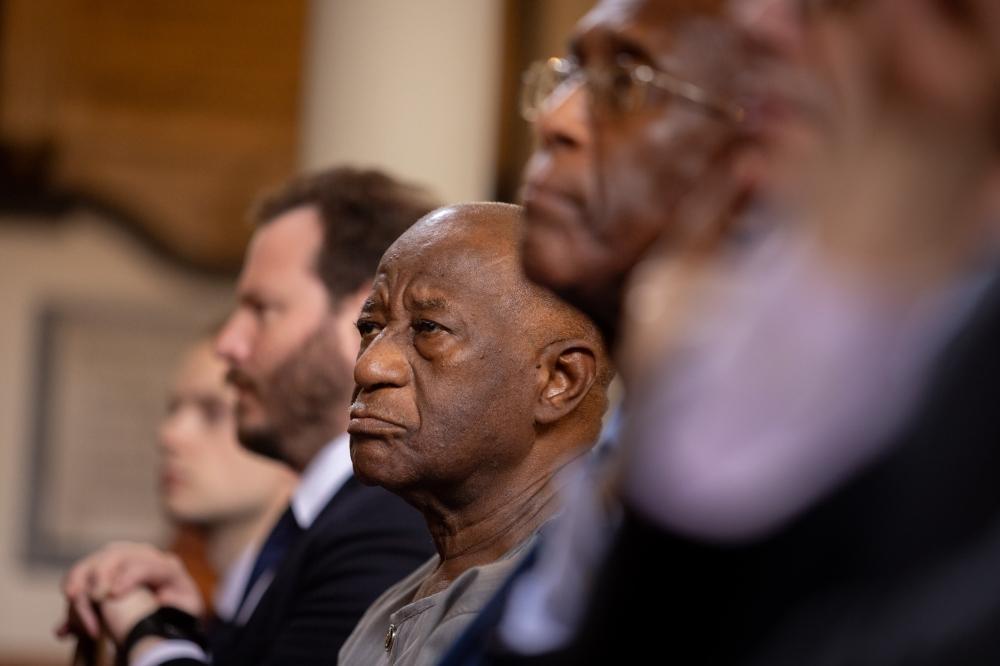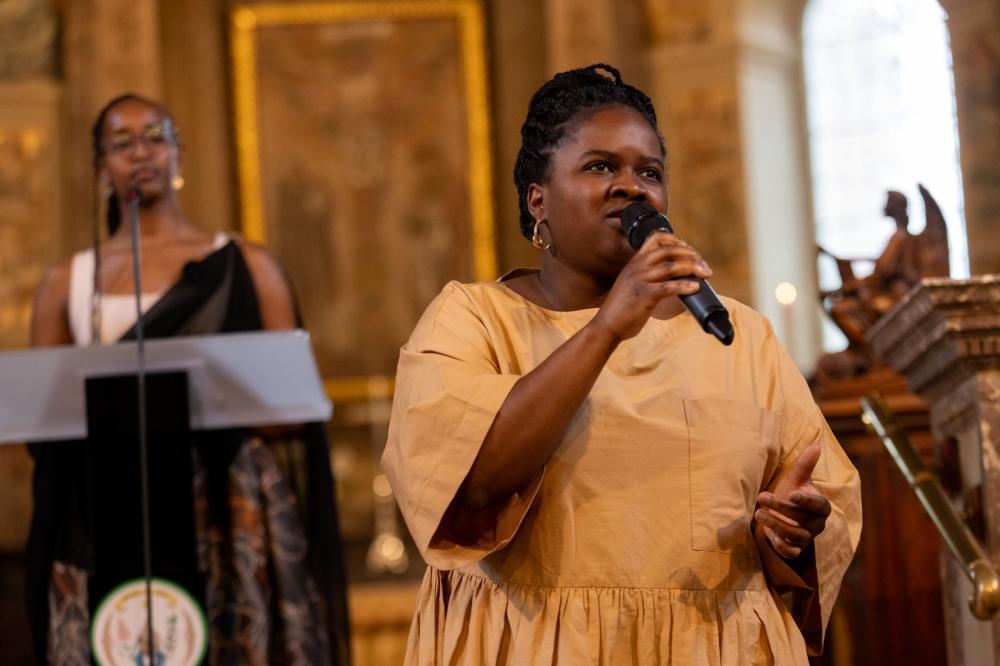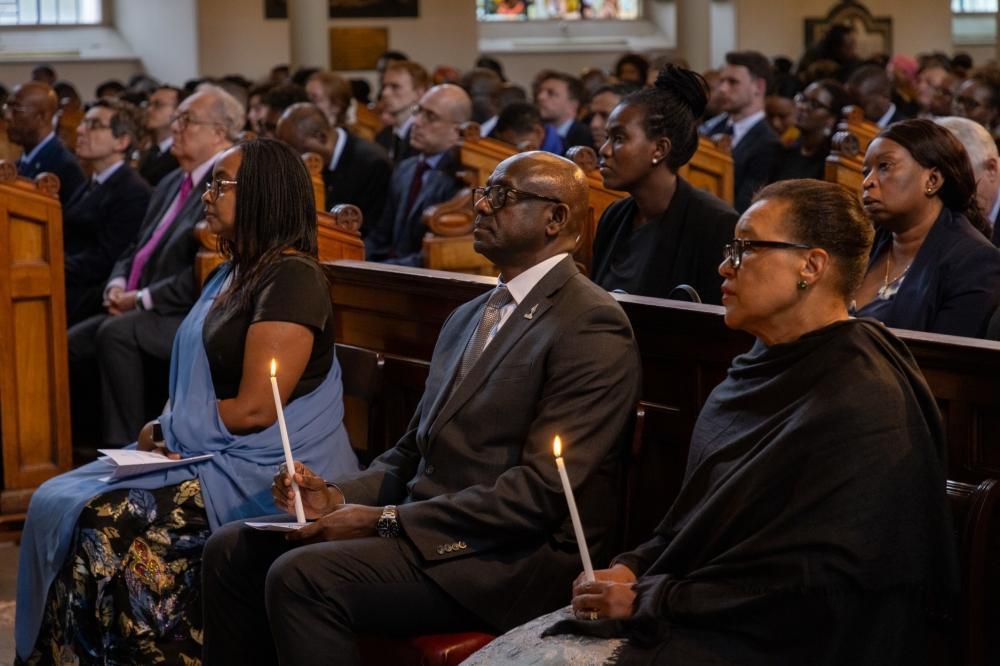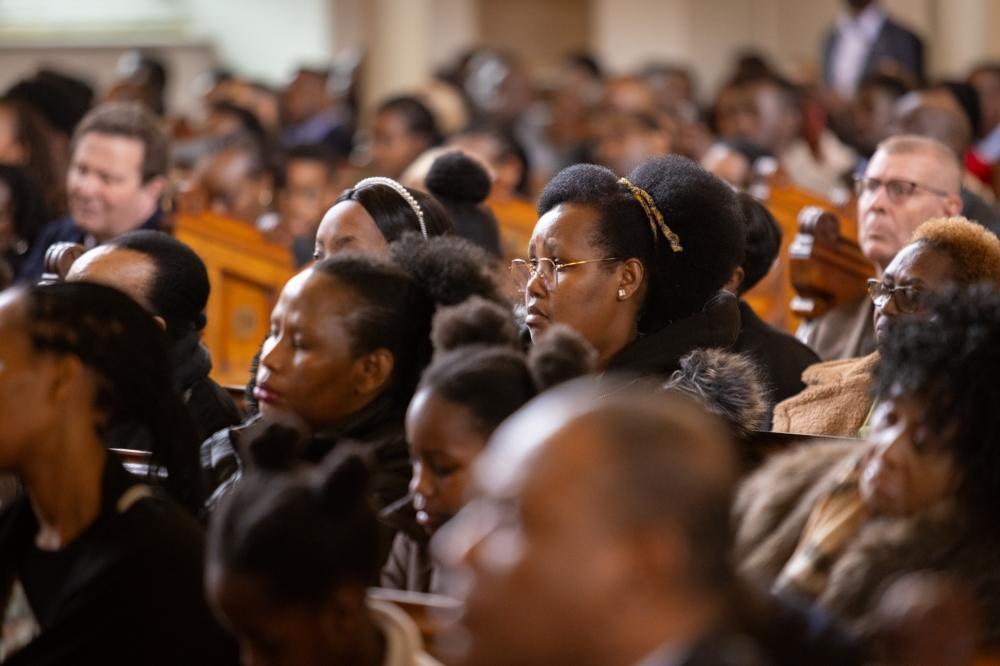Africa-Press – Rwanda. As the Rwandan community in the UK marked the 30th Commemoration of the 1994 Genocide against the Tutsi, on Wednesday, April 10, Rwanda’s High Commissioner to the UK Johnston Busingye called for justice to be served on the Genocide suspects who remain at large in the European country.
Busingye highlighted that the UK is one of the few in the West not to have tried, expedited or deported any Genocide suspects who live on their territory.
Celestin Mutabaruka, Dr Vincent Bajinya, Emmanuel Nteziryayo, Celestin Ugirashebuja, Charles Munyaneza are some of the Genocide fugitives who are known to live in the UK.
“After 30 years, every passing day is one too many,” he said during the Kwibuka event attended by over 600 members of the Rwandan community in the UK, members of London’s diplomatic corps, the UK Government and Commonwealth officials.
“In the UK, a number of alleged genocide perpetrators remain at large and at the expense of the British taxpayer. There is sufficient evidence to warrant that these suspects stand trial, but thirty years later, their victims are still waiting for their day in court,” Busingye said.
He noted that Rwandan authorities had been cooperative with their UK counterparts but to no avail.
“We understand that it takes time to prepare such cases, but after three decades, every passing day is one too many. All we ask is that these men have their day in court, that justice is permitted to take its course.”
Busingye noted that it was important to ensure that the judicial process would not be delayed any longer because the Genocide suspects and their supporters remained “mere outposts for genocide denial in the UK.”
The High Commissioner said the generation of Rwandans born during and after the Genocide against the Tutsi were ready to sustain gains made along the 30-year journey of national unity and reconstruction.
“These past thirty years are of profound importance; they represent the emergence of a generation shaped by the aftermath of genocide and the sustainability of the rebirth of Rwanda,” he noted.
“Children who witnessed the genocide, or were born just after it, are now grown-ups, building families of their own, carrying with them the memories and scars of, but not hostages to, our past, but most importantly, simultaneously assuming responsibility over families, communities, businesses, jobs and the country. It’s a generation that will guarantee our country’s unity and future.”
Busingye also urged those in attendance to use their knowledge to identify and challenge the spread of Genocide ideology, hate speech and Genocide denial.
He also noted that the presence of the FDLR, a DR Congo-based armed group linked to the 1994 Genocide against the Tutsi, was still a threat to Rwanda’s security and unity.
“Beyond our borders, there are forces that seek to destroy this [unity] and are busy planting seeds of ethnic extremism and hatred,” he said.
“30 years after the genocide, the remnants of the genocidal regime who fled into Eastern DRC armed with military grade arms and ethnic extremist ideology are still active, having been preserved and nurtured by the state.”
Commonwealth Secretary General Patricia Scotland commended Rwandans for their commitment to rebuilding a country shattered by Genocide.
“We reflect on thirty years of efforts by Rwandan people from all walks of life, to rebuild their beloved country brick-by-brick, within limited means but with hearts full of devotion and hope,” Scotland said.
“We reflect on the extraordinary story of a small but great African nation which chose life over death, reconciliation over vengeance, remembrance over forgetting, striving over stagnation, courage over fear.”
In her speech, British investigative journalist and author Linda Melvern, who has written extensively about the 1994 Genocide against the Tutsi in 1994 and the role of the international community in it, noted that denialism today threatened to “airbrush” the history of the Rwandan tragedy and the role of the RPF-Inkotanyi which stopped it.
“Denial demeans the gravity of the survivors’ experiences. With increasing concern, we have watched a campaign of genocide denial, our newspapers repeating the same tropes used by the genocidaires in their trials,” Melvern said.
“Deniers try to airbrush history denying the bravery of the RPF and their leadership. The deniers want to blur the line between perpetrator and victim.”
Members of the Rwandan community in the UK, diplomatic corps, government officials, and Commonwealth representatives commemorated the 30th anniversary of the 1994 Genocide against the Tutsi in the UK, on Wednesday, April 10.
British investigative journalist and author Linda Melvern highlighted that denialism today threatens to “airbrush” the history of the Rwandan tragedy and the role of the RPF Inkotanyi, which stopped it
Commonwealth Secretary-General, Patricia Scotland, commended Rwandans for their commitment to rebuilding a country shattered by genocide.




For More News And Analysis About Rwanda Follow Africa-Press

